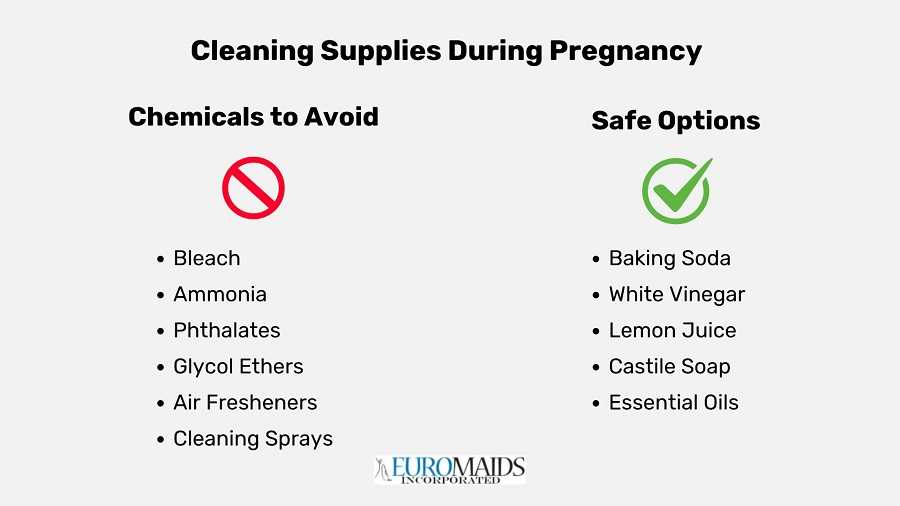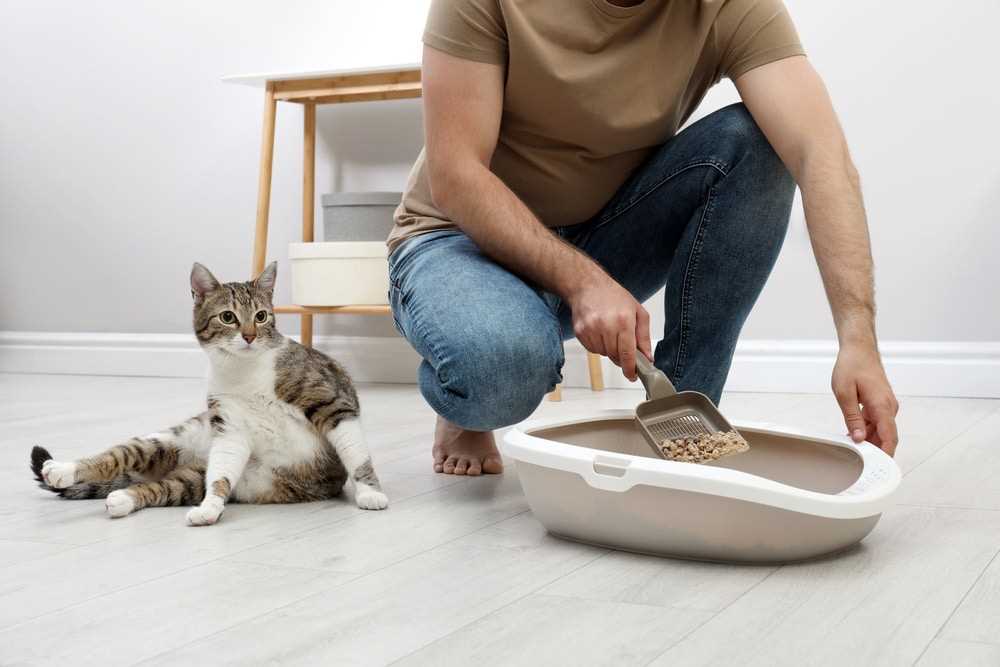



It’s best to avoid direct interaction with my box during this special time. The reason lies in the potential risk of toxoplasmosis, a parasitic infection that can harm both the expecting human and the little one on the way.
If assistance is needed, having someone else take care of my box is a great alternative. If help isn’t available, wearing gloves and a mask can reduce exposure to any harmful substances. Always wash hands thoroughly afterward. Keeping the area well-ventilated is also a smart choice.
Regular maintenance of my box can minimize odors and mess, making it more manageable for anyone involved. Choosing a clumping material may also simplify the cleaning process, as it allows for easier removal of waste.
Recommendations for Handling Feline Waste During Pregnancy
For those expecting, it’s advisable to delegate the task of managing feline excrement to another household member. This minimizes exposure to potential health risks associated with parasites and bacteria found in waste.
Alternative Solutions
- Consider using a self-cleaning litter box to reduce direct contact.
- Ask a partner or friend to take over this responsibility temporarily.
- Wear gloves and a mask if handling waste is absolutely necessary.
- Ensure the area is well-ventilated to avoid inhaling any dust or odors.
Health Precautions
- Stay informed about potential health risks such as toxoplasmosis.
- Regularly check with a healthcare provider for personalized advice.
- Maintain good hygiene practices to keep the living environment safe.
Making these adjustments ensures a safer space for both the expecting individual and the furry companion. Prioritize health and well-being above all.
Understanding Toxoplasmosis Risks
It’s critical to recognize that toxoplasmosis can pose serious health risks. This infection, caused by the Toxoplasma gondii parasite, can lead to severe complications during pregnancy. Transmission often occurs through contact with contaminated feces, which can happen when handling a specific type of waste.
Symptoms and Impact
Many individuals may not exhibit symptoms, but flu-like signs can arise, including muscle aches and fever. For those who are expecting, exposure can result in congenital toxoplasmosis, potentially impacting the baby’s development, leading to vision problems or neurological issues.
Prevention Strategies
To minimize risks, ensure good hygiene practices are followed. Always wash hands thoroughly after any interaction with pets. If someone else is available, it’s wise to delegate tasks involving the litter box. In addition, keeping your living space clean and ensuring that food is properly handled can prevent accidental exposure.
For more insights on maintaining a healthy lifestyle, check out this guide on how to cook juicy chicken breast skillet.
Safe Alternatives for Litter Maintenance

Using alternatives to traditional substrates can significantly reduce health risks. Here are some suggested options:
- Biodegradable Materials: Options like corn-based or wheat-based pellets are safer. They break down easily and are less likely to harbor harmful pathogens.
- Paper Products: Recycled paper bedding is absorbent and non-toxic. This choice also minimizes dust exposure.
- Wood Shavings: Untreated wood shavings serve as a natural absorbent material. Ensure they are free from additives or chemicals.
Involving Others
It’s beneficial to have another person handle the routine tasks associated with your feline’s hygiene. If possible, designate a family member or friend to take over this responsibility temporarily.
Regular Monitoring

Keep an eye on the condition of the litter box. Frequent checks can help maintain hygiene without direct involvement. Ensure it stays clean and odor-free by encouraging the use of a scoopable alternative.
Guidelines for Handling Cat Litter During Pregnancy
To minimize risks, avoid engaging in direct contact with the substrate. Designate a non-pregnant individual for this responsibility whenever possible.
Ensure proper ventilation in the area where the substrate is located. Open windows or use fans to maintain airflow and reduce inhalation of any airborne particles.
Use gloves if direct handling is unavoidable. This barrier can reduce exposure to potential pathogens.
Opt for clumping materials that are easier to manage, allowing for swift disposal without extensive handling. Consider using a disposable scoop to minimize contact.
Regularly change the substrate to maintain cleanliness and reduce the likelihood of disease transmission. Fresh substrate helps to keep the environment safe.
Store the substrate in a sealed container to limit exposure to dust and odors. This also keeps the area tidy and organized.
Consult with a veterinarian about any specific concerns regarding pet health and safety during this time. They can provide tailored advice based on individual circumstances.
Stay informed about any updates regarding health guidelines related to pets during this period. Research and recommendations may evolve, ensuring the best practices are followed.
Signs of Toxoplasmosis Infection to Watch For
Pay attention to flu-like symptoms such as fatigue, muscle aches, and fever. If these occur, seeking medical advice promptly is crucial. Other indicators may include swollen lymph nodes, particularly in the neck region, and headaches that persist. In some cases, vision problems might arise, signaling a more severe condition.
Pregnancy-Related Symptoms
During gestation, an increased risk exists. Watch for symptoms like prolonged fever and unusual fatigue. If experiencing any of these signs, immediate consultation with a healthcare provider is recommended to discuss testing options and treatment plans.
Preventive Measures
Maintaining a clean environment and monitoring health can help reduce risks. Keeping an eye on outdoor activities and ensuring proper hygiene is also beneficial. Additionally, consider using products like best mosquito repellent for cats for added safety.
Importance of Regular Veterinary Check-ups for Cats
Routine veterinary visits are essential for maintaining health and preventing diseases in felines. Annual examinations help detect potential health issues early, allowing for timely intervention and treatment. These check-ups typically include vaccinations, dental assessments, and screenings for common ailments.
Vaccination Protocols
Staying up-to-date with vaccinations protects against serious diseases like feline leukemia and rabies. Discussing appropriate vaccination schedules with a veterinarian ensures optimal immunity and overall well-being.
Behavioral and Dietary Assessments
Regular consultations provide an opportunity to address behavioral concerns or dietary needs. Tailored nutrition plans can prevent obesity and related health problems, promoting a longer, healthier life.
Involving Your Partner in Cat Care Duties
Sharing responsibilities in pet care is key. Assign specific tasks to each partner to ensure smooth management of feline needs. For instance, one can handle feeding and grooming, while the other manages health check-ups and playtime. This division helps maintain a stress-free environment.
Task Division
| Task | Partner 1 | Partner 2 |
|---|---|---|
| Feeding | Morning meals | Evening meals |
| Playtime | Interactive toys | Laser pointer sessions |
| Health Check-ups | Vet appointments | Medication administration |
| Grooming | Brushing | Nail trimming |
Communication is Key
Regular discussions about the pet’s behavior and health ensure that both partners stay informed. Keeping a shared calendar for vet visits and medication schedules enhances teamwork. This collaborative approach not only lightens the load but also strengthens the bond between partners and their furry friend.
Best Practices for Maintaining a Clean Litter Box
Daily scooping is a must. Removing waste every day keeps odors down and prevents a buildup of bacteria. It also encourages proper bathroom habits.
Use a scoop with a fine mesh to catch clumps effectively. This helps ensure no waste is left behind, contributing to a fresher environment.
Change the substrate regularly, ideally once a week. This involves emptying the entire box, cleaning it with a mild detergent, and rinsing thoroughly. Ensuring the box is dry before adding new material is crucial to prevent clumping issues.
Choose a high-quality substrate that controls odors and absorbs moisture well. Some options include clumping clay, natural wood, or corn-based formulas. Avoid scented versions that may irritate sensitive noses.
Position the box in a low-traffic area for peace and privacy. A quiet spot makes it more inviting and reduces stress during use.
Maintain multiple boxes if there are several felines in the household. The general rule is one box per cat plus one extra. This reduces territorial disputes and ensures everyone has access when needed.
Monitor the box for signs of health issues. Changes in elimination habits or unusual waste appearance can indicate health concerns. Staying observant helps catch potential problems early.
Involve family in the care routine. Sharing responsibilities ensures consistency and a clean space for everyone.








